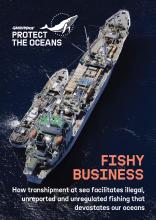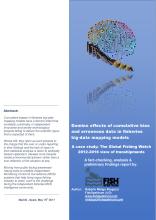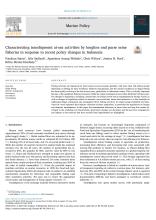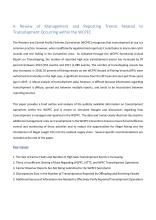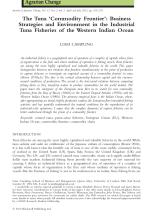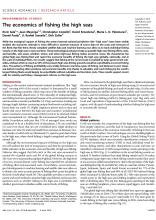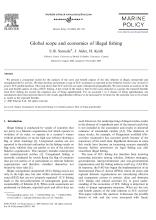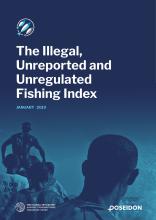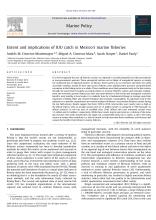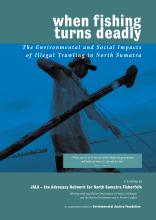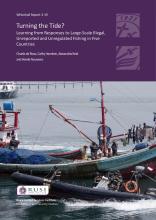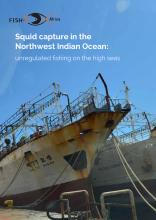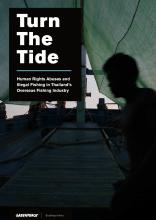Fishy Business - How Transshipment at Sea Facilitates IUU Fishing that Devastates our Oceans
Greenpeace undertook a research project to understand the extent of misuse of AIS by the global reefer industry. Greenpeace identified and studied 416 reefers that make up the majority of vessels that have transshipped at sea in the period 2017-2019. From these vessels, Greenpeace found multiple instances of violations of AIS, with proof in adopting 'flags of convenience' (most commonly, Panama), the behavior of vessel interactions with 'encounter' and 'loitering,' and transshipment in areas that are unregulated or pose a threat to marine habitats. The continued violations of AIS by reefers, according to Greenpeace, calls for a robust Global Ocean Treaty that will stop these harmful activities and protect our oceans.
Language
